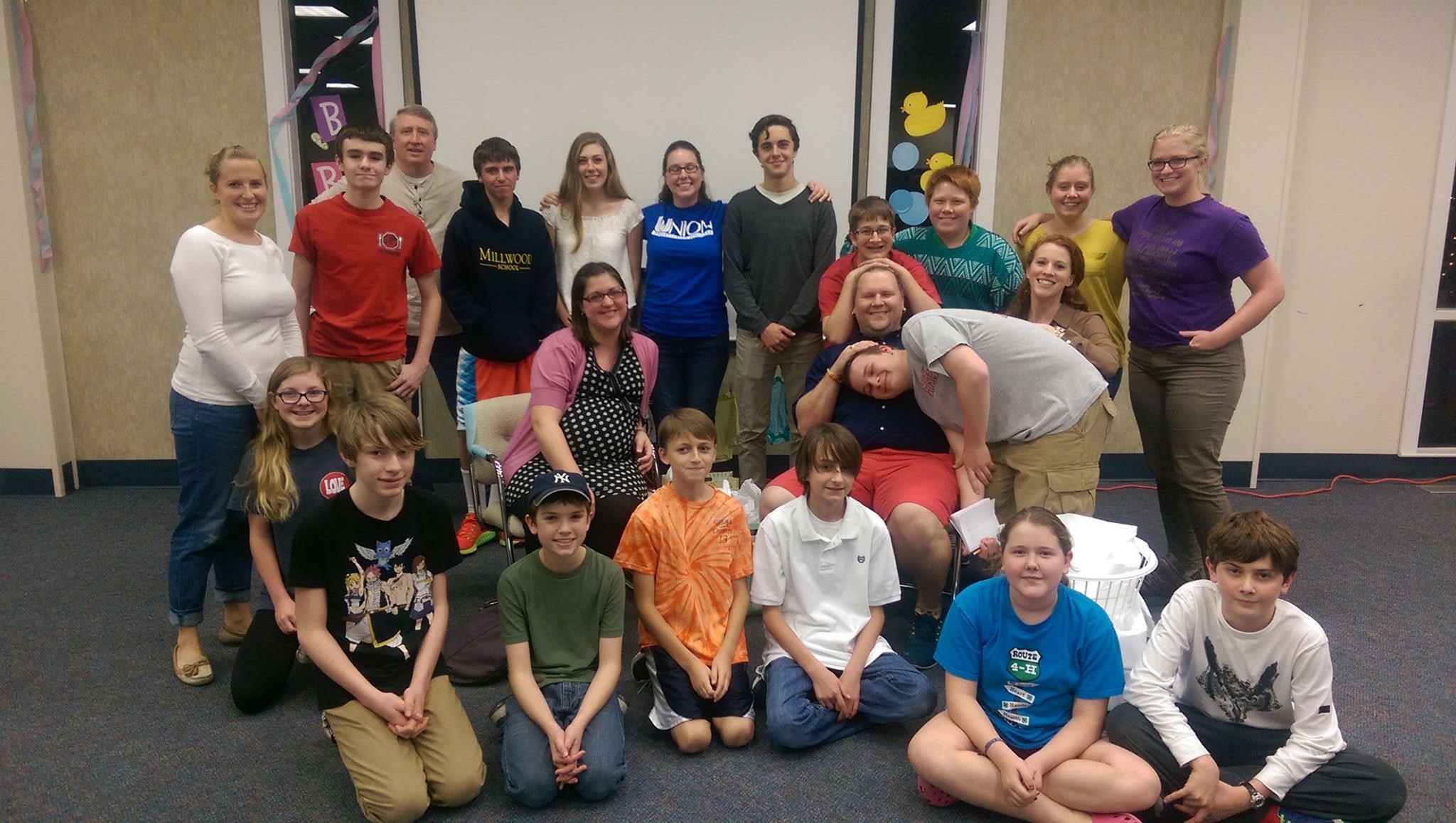Learning how to talk about suicide

Student Caitlin Hahn (back row center in blue Union shirt) with her church youth group in Henrico County, Virginia. She plans to share with them what she learned at the APCE conference about destigmatizing suicide.
M.A.C.E./M.Div. student Caitlin Hahn shares her reflections on attending the Association of Presbyterian Church Educators (APCE) 2017 Annual Event in Denver, Colorado.
One of the powerful workshops I attended at APCE was on suicide education and training. Having had friends and youth confide in me that they were having suicidal thoughts, I know how scared and helpless that can make you feel. I went to this workshop hoping to learn how to help in those situations because they are, of course, literal life-and-death situations!
First, I learned how to talk about suicide. I learned to say someone “died of suicide” rather than “committed suicide” because the word committed has a negative connotation (committing crimes, etc.). I also learned that “suicide survivors” refers to people who have lost a loved one to suicide and those people who have attempted suicide and survived are actually called “second-day people” because they have lived to see another day.
Next, I learned the importance of talking about and destigmatizing suicide. The leaders had us pair up and talk for 90 seconds using the word “suicide” in any way just to get us comfortable with the word. I thought this was a great activity and I plan to use it with my youth group. One reason people refrain from discussing suicide is that they fear it will put the idea of suicide in people’s heads, but this has not been proven true – if anything, it does the opposite. One of the leaders pointed out that we often have people in our churches considering suicide sitting right beside people who have considered or attempted suicide and lived. This was a powerful image for me and made me realize how crucial talking about suicide and sharing our experiences is.
Another idea I’m going to take home to my youth group is having everyone designate three people they will tell if they have suicidal thoughts and encouraging them to tell their three that they are their three. I believe youth would feel more comfortable admitting that they are considering suicide to people with whom they have already discussed suicide and who will therefore not be as shocked by this news.
The workshop was hosted by Soul Shop, an organization that addresses suicidal desperation in faith communities. They travel around the country hosting workshops to train people to deal with suicidal desperation in their churches. They gave us a lot of good information in our session, but I would like to attend one of their sessions to feel better equipped. Maybe Union Presbyterian Seminary should even host a training session! After all, I learned that 6% of adults and 17% of youth are considering suicide at any given moment. This is an epidemic affecting all of our communities and we need to become better equipped to help.








